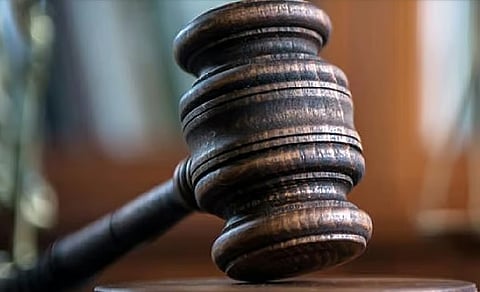

Barjola canal (West Bengal): WBPCB and state must act against untreated effluent discharges.
Karnataka waste management: 2,567 TPD processing gap; DPRs target statewide remediation by 2027.
River Bhadar (Gujarat): Nagarpalika, GPCB ordered to stop untreated sewage and industrial discharge.
If industries or municipalities are found releasing untreated waste and sewage into the Barjola canal, the West Bengal government and the West Bengal Pollution Control Board (WBPCB) will take legal action as per the law, according to a report submitted to the National Green Tribunal (NGT) by the National Mission for Clean Ganga (NMCG) on November 17, 2025.
The report was regarding the alleged release of untreated effluents into the Hooghly River at Sarenga via the Barjola canal by numerous industrial units at Jalan Industrial Complex, Sankrail Industrial Park and Dhulagari village, causing pollution and environmental harm.
The state government and its urban local bodies are responsible for setting up sewer systems to capture effluent entering drains and canals. The report noted that the Barjola canal falls under the Department of Irrigation and Waterways, West Bengal, which must take necessary actions as directed by WBPCB.
State pollution control boards are tasked with taking necessary actions against industries and municipalities releasing untreated waste into any streams and water bodies, including the Barjola canal.
In its affidavit dated September 25, 2025, WBPCB provided details of the industries and other polluting activities inspected by its officials on various occasions. The board also provided details of the major drains within the Jalan Industrial Complex that discharge effluent into the Sarenga canal.
NMCG reported that no detailed project report (DPR) related to pollution abatement for the Barjola / Sarenga canal has been received.
Furthermore, the implementation and supervision of pollution control measures in the state are primarily the responsibility of the state government, urban local bodies (ULB) and WBPCB. NMCG supports the efforts of state government agencies in deserving cases, depending on fund availability and priority for reducing pollution in towns along the Ganga.
In Karnataka, the total waste generation stands at 13,269 tonnes per day (TPD). But the current processing capacity is only 10,702 TPD, leaving a processing shortfall of 2,567 TPD across urban local bodies, including the Greater Bengaluru Authority (GBA).
This deficit includes 971 TPD in wet waste management and 1,596 TPD in dry waste management, as noted in a report submitted before NGT by the Chief Secretary to the Government of Karnataka on November 15, 2025.
Regarding legacy waste, there are 223 urban local bodies with 231 dumpsites, containing 17.6 million tonnes MT of legacy waste, of which 7.82 MT has been remediated so far.
Within the GBA, nine legacy waste dump sites totaling 9.78 MT have been identified.
Scientific capping of 4.24 MT has been completed at Bellahalli and Mittaganahalli, and 443,000 tonnes of remediation has been completed in Bengaluru.
The remaining sites are in various stages of progress and are expected to be fully completed by August 2027.
Across Karnataka, 926 DPRs have been prepared for solid and liquid waste management. Of these, 21 DPRs are related to GBA, while the remaining 905 DPRs concern ULBs. Among these, 637 are focused on solid waste management and 268 on liquid waste management.
Karnataka has finalised all 637 DPRs for 310 ULBs across four categories: dry waste, wet waste, legacy waste, and construction & demolition (C&D) waste.
In terms of used water management, out of the 268 DPRs for sewage treatment plants, 109 are currently being prepared. These DPRs are expected to be completed by December 2026, with the execution of the related works targeted for completion by December 2027.
On November 17, 2025, NGT directed Jetpur Navagadh Nagarpalika in Gujarat to prevent any untreated sewage from being released into stormwater drains and to ensure complete household connectivity to the sewage drainage system. The nagarpalika was also ordered to prevent the discharge of untreated sewage or industrial waste into the River Bhadar.
Jetpur Navagadh Nagarpalika was tasked with swiftly completing the installation of the underground sewage network.
Additionally, the Gujarat Pollution Control Board (GPCB) must ensure that both CETPs (7 MLD of Jetpur Dyeing and Printing Association and 30 MLD at Bhat Gam) comply with conditions to prevent effluent discharge into the Bhadar River or stormwater drains.
The GPCB is also responsible for ensuring that no industry or sewage treatment plant or common effluent treatment plant (CETP) operates illegally or without consent to operate, and that effluents are not discharged into the river or storm water drains on either side of the river, according to the order.
The issue pertains to pollution in the Bhadar River due to untreated sewage and industrial activities in the Jetpur area. The applicant also highlighted concerns about inadequate sewage treatment facilities in Jetpur and the insufficient capacity of CETP at Bhatgam, as well as the non-functioning CETP at Gondra, Jetpur.